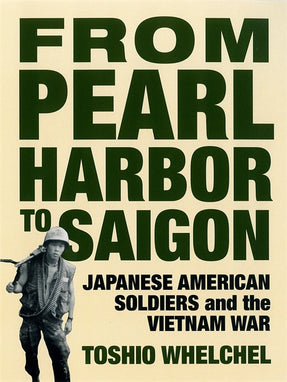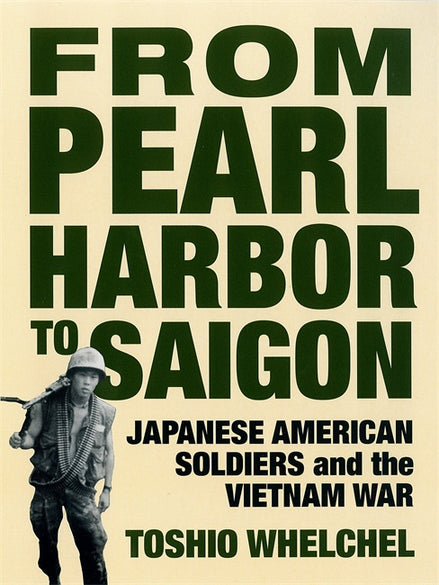
From Pearl Harbor to Saigon:Japanese American Soldiers and the Vietnam War
Among Vietnam veterans, Japanese Americans have remained largely silent about their wartime experiences. In this text many of them talk about their struggle for identity in the USA and how this affected their participation in the Vietnam War in particular.
“The DI put me and my friend in front of the platoon and said, ‘this is what the Viet Cong looks like, with slanted eyes’.”—Raymond Imayama, US Marine Corps, Dong Ha, 1968–69.
Among Vietnam veterans, Japanese Americans have remained largely silent about their wartime experiences. Until now. In this ground-breaking book, many of them talk for the first time about their struggle for identity in the US and how this affected their participation in the Vietnam War.
Toshio Whelchel interviewed over one hundred veterans in the course of his work, and here he presents the most revealing and moving of their stories. Several of them begin in the relocation camps to which many Japanese American families were posted during and after the Second World War environments which led many young men to accept the military draft without question. Some reveal the various forms of discrimination practised across the different military institutions. All illustrate the profound influence of the war on their lives: how they dealt with routine racism, their growing politicisation and the struggle to reintegrate themselves into American society after the war.
“What the American presence in Vietnam was doing was creating a dehumanizing environment for all the Vietnamese. Part of this dehumanization was the paranoia about who the enemy really was. I think that many Marines lost the ability to make that distinction, and that realization started to bother me because I was Asian. If I could be mistaken for a Vietnamese, then I could be a gook. In the eyes of many Americans, I was already a gook!”—Marcus Miyatomo, US Marine Corps, Danang, 1965–1966
